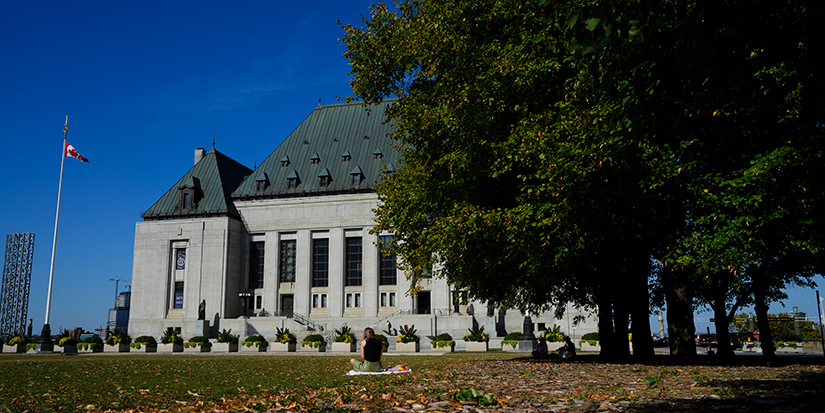Latest News
A Richmond resident’s journey to healing

By Samuel Cheng
Published 12:04 PDT, Thu March 30, 2023
—
Vera Cheng, a social worker from Richmond was diagnosed with Tarlov Cyst disease, a rare disease that has plagued her, since she was in a motor vehicle accident.
Tarlov Cyst are fluid-filled sacs that can be located along the nerve roots of the spine. It is most commonly found in the sacrum, also known as the bottom of the spine.
Tarlov Cyst was first discovered in 1938. However, the cause of Tarlov Cyst still remains unknown today. It is speculated that the shock or trauma of the spine can cause the spinal fluid to build up, which can eventually lead to the development of Tarlov Cysts. Severe falls or car accidents are some of the examples that may increase the likelihood to the buildup of cerebrospinal pressure.
Tarlov Cyst can be distinguished by two different types: asymptomatic and symptomatic. Asymptomatic means having little to no symptoms while symptomatic does pose a variety of different symptoms depending on the severity of the condition.
“Symptomatic Tarlov Cyst disease is a rare disease as only 5-9 per cent of the population have cysts but only 1 per cent of that 5-9 per cent experience symptoms,” says Cheng
Symptoms such as shock-like or burning pain in the lower back, headaches, loss of bladder control and even loss of feeling or control of movements in the legs and feet are some of the common symptoms for symptomatic Tarlov Cyst.
“It has progressed to excruciating nerve pain combined with bone-on-bone grinding pain and crushing sacral pain that is debilitating anytime I’m sitting, standing, walking and/or bending,” says Cheng.
If left untreated, the buildup pressure on the nerves by the cysts can cause the surrounding bones to deteriorate. Which in Vera’s case, it’s causing sacral bone erosion according to a medical report from Texas neurosurgeon. If worsen, it can cause permanent damage to one’s nervous system. According to the studies, women are at a much greater risk of developing such condition compared to men.
“If I do not get surgical treatment, I risk permanent neurological damage and the loss of the use of my legs,” says Cheng.
There are many reasons as to why Tarlov Cyst is a difficult disease to diagnose. Firstly, there is very little knowledge about the condition. Secondly, many of the doctors and specialists may not consider the possibility of Tarlov Cyst as there are many other disorders that may pose similar symptoms. Lastly, it would be difficult to determine Tarlov Cyst as the be root of the problem without undergoing magnetic resonance imaging (MRI) or computed tomography (CT) scan.
“I live in B.C. Canada, where there is very little understanding of this disease and therefore, my experiences and pain are often dismissed,” says Cheng.
Although there are no permanent cures for the disease, there are treatments and surgeries that can help relieve the pain that the patient is going through. The method of treatment is individualized, capitalizing on the specific symptoms that one is undergoing.
A combination of non-surgical and surgical methods of treatments are used to combat the cysts.
Draining the fluids and shunting the cyst are one of the most direct method of treatments. It helps to mitigate the buildup pressure and the pain. However, this form of treatment is impermanent as the fluids in the cyst will build up over time.
Non-steroidal anti-inflammatory drugs (NSAIDs) and transcutaneous electrical nerve stimulation (TENS) are procedures used to alleviate irritation, inflammation and nerve pain.
Another practice is to inject the cysts with fibrin glue, a biologically-based sealant, to prevent the buildup of fluids. Though the effectiveness of this method has shown inconsistent results as some patients experienced immediate relief of pain while it took others longer to achieve the same results. Not to mention the possibilities of developing other complications and side effects along the way.
This rare condition has prevented Vera from continuing her career as a social worker and a counsellor. As an individual whose nature of the job is to assist and help others with their needs and problems, the sudden shift in the spectrum can be a challenging fact to take-in.
“I have spent my career listening to the stories of others,” says Cheng. “It is difficult for me to ask for help as I am used to being the helper.”
Upon the discovery of the rare disease, Vera has remained faithful and hopeful. Despite the torment and the suffering that she is currently going through, she continues to inspire and encourage others who may have or experience other rare diseases.
“Don't give up,” says Cheng. “As discouraging as it can get, continue to advocate for yourself and seek out a second or third opinion from doctors.”
The comments are not that of the writer but of Vera Cheng.































